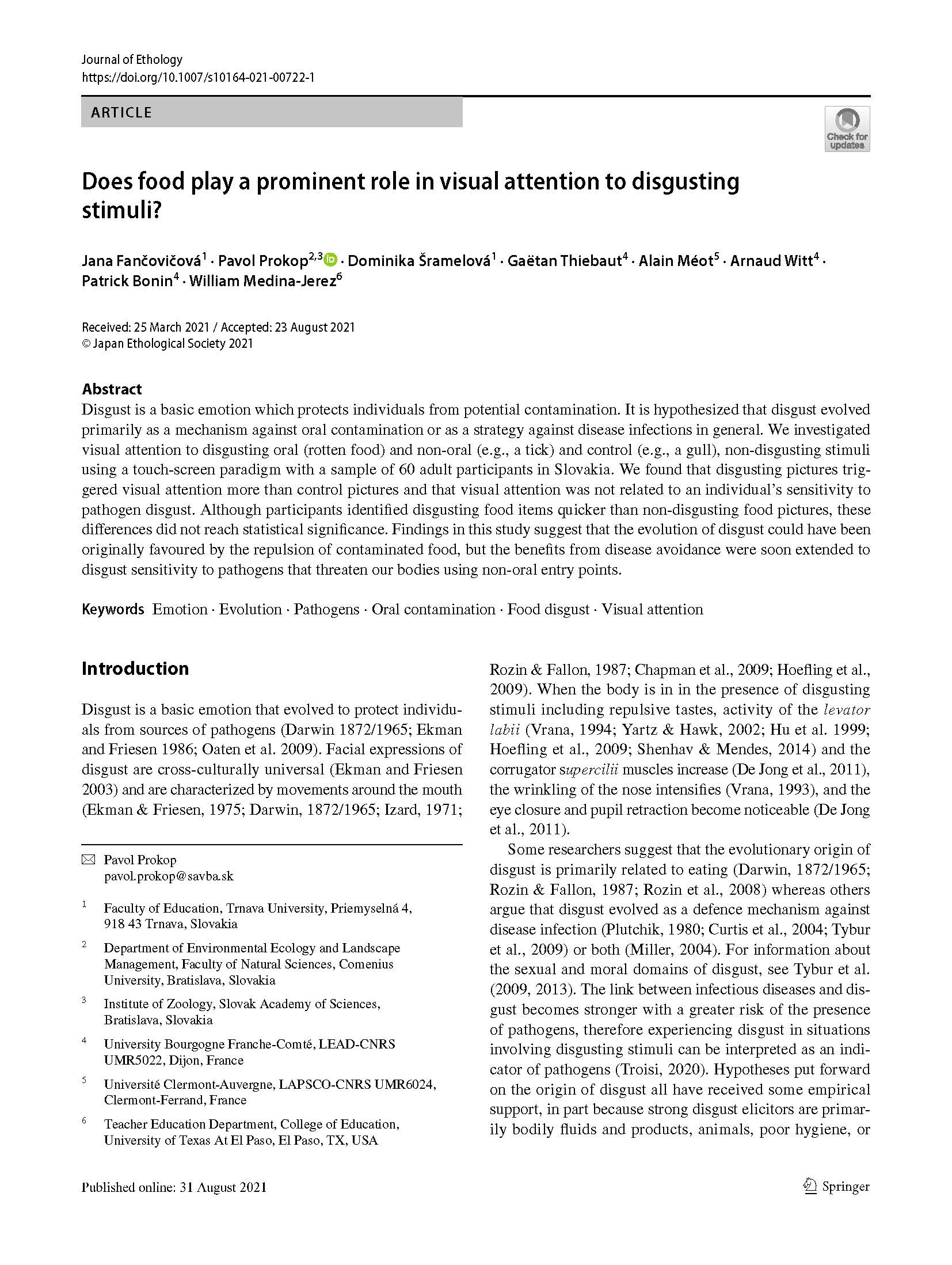Disgust is a basic emotion which protects individuals from potential contamination. It is hypothesized that disgust evolved primarily as a mechanism against oral contamination or as a strategy against disease infections in general. We investigated visual attention to disgusting oral (rotten food) and non-oral (e.g., a tick) and control (e.g., a gull), non-disgusting stimuli using a touch-screen paradigm with a sample of 60 adult participants in Slovakia. We found that disgusting pictures triggered visual attention more than control pictures and that visual attention was not related to an individual’s sensitivity to pathogen disgust. Although participants identified disgusting food items quicker than non-disgusting food pictures, these differences did not reach statistical significance. Findings in this study suggest that the evolution of disgust could have been originally favoured by the repulsion of contaminated food, but the benefits from disease avoidance were soon extended to disgust sensitivity to pathogens that threaten our bodies using non-oral entry points.
Does food play a prominent role in visual attention to disgusting stimuli?
